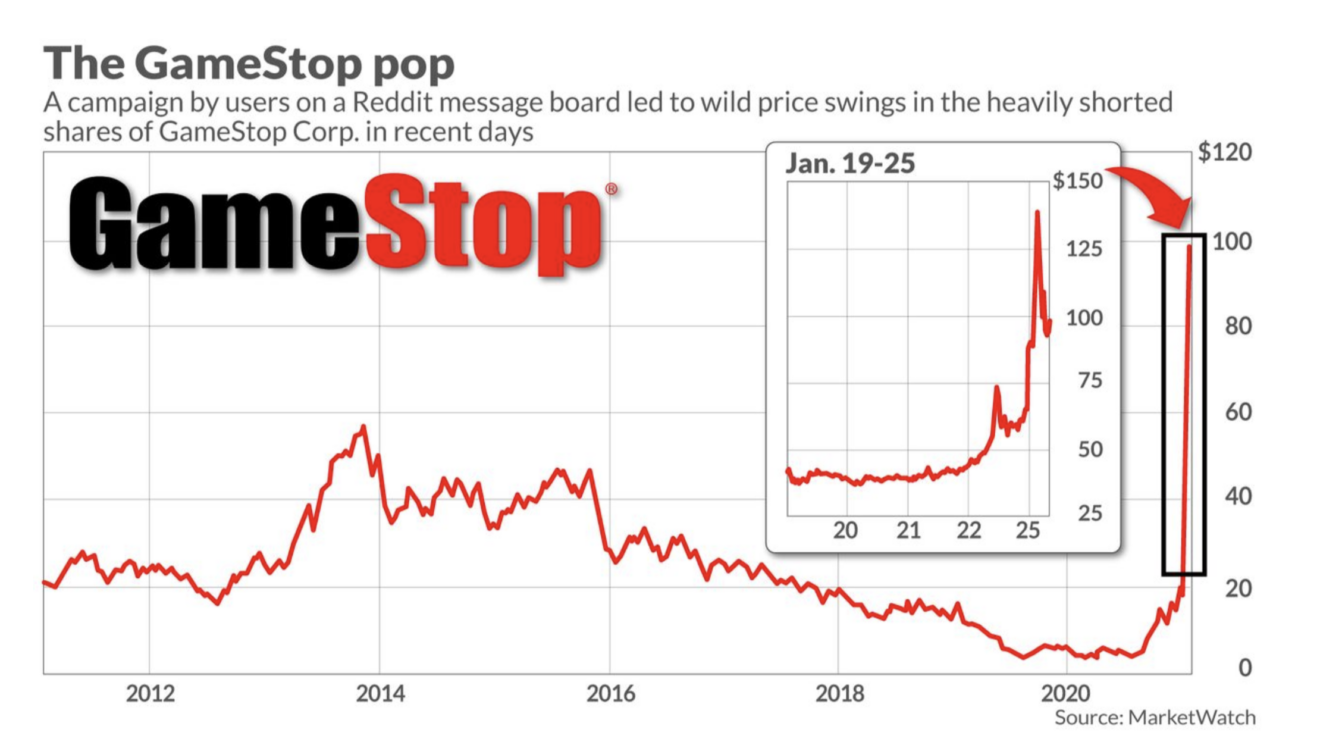Congress Conducts Investigation Into Gamestop’s Stock Surge

by Nicholas Schade ‘23
On February 18, the House Financial Services Committee held a virtual hearing addressing Gamestop’s unprecedented stock spike last month. In the hearing, Gamestop stock buyers and Wall Street professionals each presented testimony on the issue, but it remains a very open question what, if any, action might result from the inquiry. In late December 2020 and January of this year, a group of Redditors known as r/WallStreetBets bought massive amounts of Gamestop stocks to rapidly drive up its share value. The goal of this tactic, called a short squeeze, was to cripple hedge funds who had bet that Gamestop’s share value would decrease. Some hedge funds, which are vehicles of investment where wealthy individuals combine funds to make massive investments, had been previously using a practice on Gamestop known as short selling. In such a practice, the hedge fund traders borrow stocks from brokers, sell the stocks, and bet that their share value will drop so that they can buy the stocks back at a fraction of their original price. By inflating Gamestop’s share value by over 2,000 percent, the Redditors forced short sellers to buy the stocks back at a higher price than they were sold for, causing them to lose around $5 billion in total.
R/WallStreetBets’ recent attack on hedge funds is not the first time that they and their short selling practices have faced public scrutiny and contempt. The grievance behind the Redditors’ short squeeze is with the harm that hedge funds have done to popular companies over the years, leading some like Sears to bankruptcy.
However, in recent weeks, public outrage has been directed not only towards hedge funds, but also towards the trading app Robinhood, used by many of the Redditors on r/WallStreetBets. On January 28, the app imposed restrictions that prevented users from buying Gamestop stocks, hoping to force investors to sell the stocks they already owned.
With these restrictions came several conspiracy theories about Robinhood, some claiming that the company was owned by capital firm Citadel LLC, which paid off the debt of one of the hedge funds worst hit by the Gamestop short squeeze.
These events were reviewed at the congressional legislative hearing, giving insight into what the future could hold for trading firms like Robinhood and retail investors like those on r/WallStreetBets. Among the common themes of the hearing was that retail investors need more access to the stock market. In her testimony, Director of Financial Regulation Studies Jennifer Schulp argued that retail participation benefits the stock market. Maxine Waters, the head of the House Financial Services Committee, also expressed her own worries about the amount of power companies like Robinhood have in the stock market. “I am more concerned than ever that retail investors are being policed,” Waters remarked.
Ultimately, the hearing will not be the end of Congress’ research on the Gamestop stock surge. Before closing, Waters stated that more hearings will be needed to determine policy solutions, requesting to meet with securities market experts, investor advocates, and even members of the Securities and Exchange Commission (SEC).